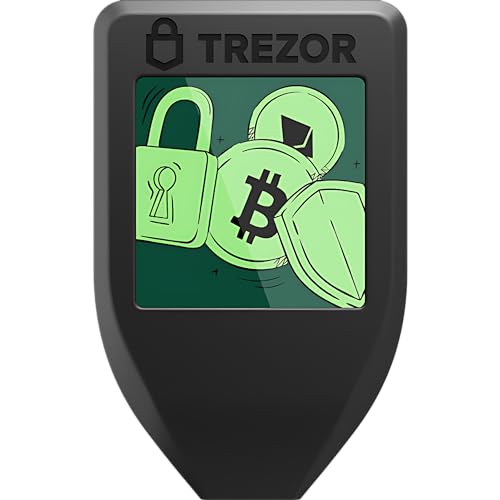The 7 Best Crypto Wallet Options in 2025
If you are looking for the best crypto wallet for personal use, this article will help you make the tough decision among hundreds of different wallets.
No matter if you are getting started with crypto, becoming a Bitcoin maximalist, buying cryptocurrencies and holding them, or making money with cryptos as an experienced investor — you will need one or more digital wallets to store, send, receive and exchange your digital assets. However, what’s the best crypto wallet? Keep reading to find out.
Key Takeaways:
- Picking the right crypto wallet depends largely on how you plan to invest in crypto, including factors like how much money you’re going to invest and how long you plan to sit on your investments.
- The Ledger Nano S is our favorite crypto wallet, as it has top-notch security. It is one of the two cold wallets we recommend in this list.
- If you’re new to crypto and looking for something user-friendly and free, we recommend the Coinbase wallet, which is one of five hot wallets we recommend.
The best option comes down to your specific needs and wants. This article will help you choose the right cryptocurrency wallet and explain their differences, from cold vs hot wallets, to paid vs free wallets. However, if you’re looking for a quick answer, we recommend the Ledger Nano S for your cryptocurrency wallet.
What Are the Best Crypto Wallet Options for 2025?
The best crypto wallet is one that keeps your coins safe, while also allowing you to trade or spend them when the time is right. Cryptocurrencies are becoming more and more popular all over the world. That’s why choosing the right wallet for your needs is essential.
Here’s a quick breakdown of the seven best crypto wallets.
All of the crypto wallets below are non-custodial and all the hot wallets are cold-compatible.
| Wallet: | Best For | Type | Price | Supported Tokens |
| Ledger Nano S | Overall | Cold Wallet | $79.00 | 1,000+ |
| Trezor Model T | Hardware | Cold Wallet | $129.00 | 1,500+ |
| MetaMask | Web 3.0 | Hot Wallet | Free | 100,000+ |
| Exodus | Desktop | Hot Wallet | Free | 150+ |
| Coinomi | Mobile | Hot Wallet | Free | 1,500+ |
| Coinbase Wallet | Beginners | Hot Wallet | Free | 100,000+ |
| Mycelium | Bitcoin | Hot Wallet | Free | 20 |
However, before you pick one or more wallets, you need to ask yourself these key questions:
- Am I a long-term investor, or am I trading my cryptocurrencies?
- Is ease of use or security more important to me?
- How much do I want to spend on my wallet?
There are a few more things to keep in mind. First and foremost, what do you intend to use the wallet for? Do you want a desktop or mobile wallet? Do you want to hold Bitcoin, or do you plan to keep other digital assets in your wallet? Do you need a specific type of security, like cold storage or multi-signature features, or is a hot wallet enough?
Confused? You can skip down in the article to where we explain how we chose the best crypto wallets for this list. Otherwise, we will explain these seven crypto wallets in more detail below.
Best Overall Crypto Wallet: Ledger Nano S
Ledger was founded in 2014 and has its headquarters in Paris, France. Led by two French entrepreneurs, the founders comprise eight expert developers with backgrounds in embedded security, entrepreneurship and cryptocurrencies. Today, the company has over 300 employees and offices all over the world.
The Ledger Nano S is a hardware wallet that supports over 1,000 tokens and is made of durable steel. The Nano S is the most affordable, high-security cold storage wallet and starts at around $79.00.
The physical wallet comes with a desktop, iOS and Android Ledger Live application that makes it possible to check your balances, send and receive funds, swap currencies and manage your account.
All Ledger devices have a double chip strategy to prevent access to the funds via physical attacks. The chips are comparable to the ones used in passports and credit cards.
Besides the secure hardware, Ledger also provides PIN protection and 100% offline generation of your private key. This ensures that your private key never leaves the physical device. Because it’s a non-custodial wallet, you have complete control over your funds and need to store your private key securely offline.
For us, the Nano S is the best wallet for crypto overall because you get robust security features from a trusted company for a reasonable price.
Best Crypto Hardware Wallet: Trezor Model T
Satoshi Labs, a company founded in 2013 in Prague, Czech Republic, makes the Trezor wallets. The company released its first hardware wallet just four years after Bitcoin’s introduction, and the first available cold wallet was the Trezor Model One.
Both Trezor hardware wallets — Trezor Model One and Trezor Model T — are considered safe against remote attacks. Satoshi Labs is a trusted name in crypto wallets, and even has its own security lab team to make their open-source firmware as secure as possible.
The Trezor Model T supports 1,949 currencies and has excellent usability, thanks to the color touchscreen. The Trezor hardware wallets also work well with various other exchanges and hot storage wallets if you want to stake your cryptocurrencies, for example. For us, the Trezor Model T is the best hardware wallet.
The Best Wallet for Web 3.0 Applications: MetaMask
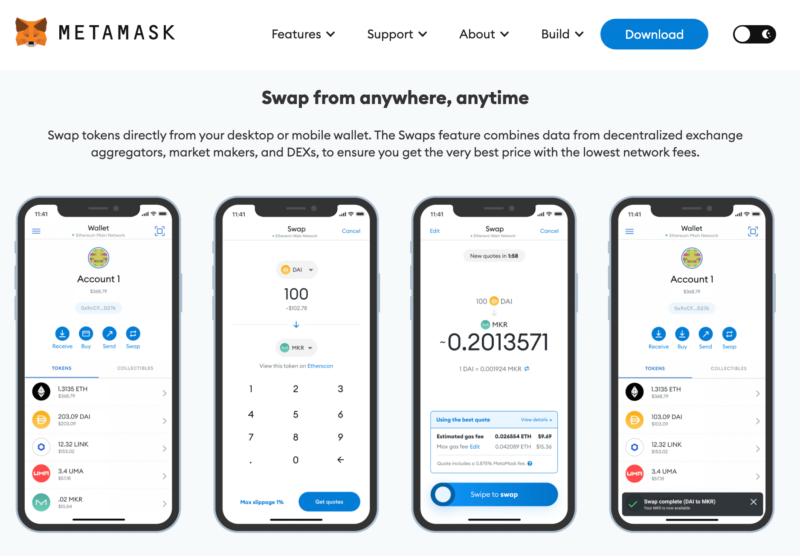
Web 3.0 applications are decentralized applications running on the blockchain. Anyone can participate in Web 3.0 without sharing or monetizing their personal data, which is a big improvement over Web 2.0. Read out what is Web 3.0 guide to learn more.
The blockchain is a digital ledger of transactions that stores information to make it almost impossible to be changed.
MetaMask is a free, highly secure digital wallet that comes in the form of a browser plugin and boasts more than 30 million active monthly users. The hot storage wallet works with most browsers and stores your private key locally — not on a MetaMask server. This gives you full control over your digital assets.
The biggest surprise might be that this popular wallet doesn’t support by default the best known cryptocurrency, Bitcoin. Freshly installed MetaMask provides access to the Ethereum network.
However, it’s easy to add different blockchain networks like the Binance Smart Chain, Fantom, Avalanche and more. Once you’ve added them, you can conveniently switch between different main and test networks.
Thanks to its compatibility with different blockchains, the simplicity of interacting with web-based decentralized applications and the ease of performing basic operations — like buying, storing, sending and swapping your tokens — MetaMask is our go-to solution for Web 3.0 applications.
The Top Crypto Wallet for Desktop: Exodus
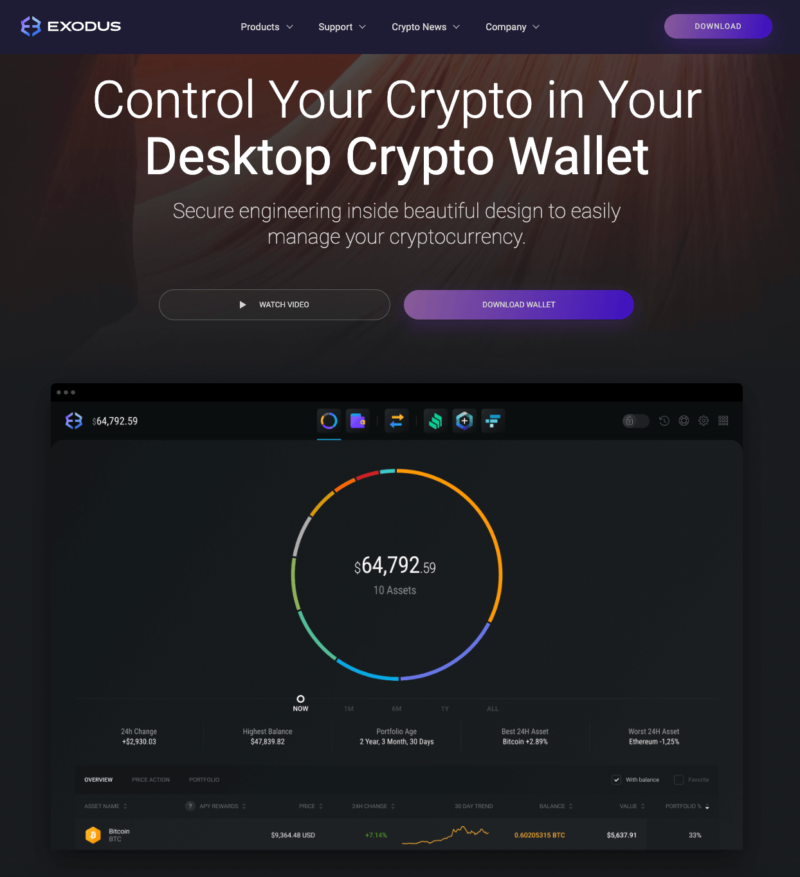
Exodus is a free desktop-first software wallet that lets you send, receive and exchange over 200 crypto assets. Mobile wallets for iOS and Android are available as well.
Because it integrates with the Trezor hardware wallet, it offers the necessary features to stake your various cryptocurrencies. Staking is the way for proof-of-stake (PoS) cryptocurrencies to verify their transactions and secure the network. Participants who stake their holdings earn a reward for doing so.
The Exodus wallet is intuitive and integrates with the cryptocurrency exchange FTX (read our what is FXT guide). This comes in handy if you want to exchange your cryptocurrencies and save fees. Besides all that, you can also browse your own NFT gallery on the Solana blockchain.
On the Exodus mobile wallet, you can also buy Bitcoin, Ethereum and 40 other digital currencies with your Visa, Mastercard, Apple Pay (outside the U.S. only), Ramp or bank transfer.
Note that Exodus does not offer two-factor authentication, but FTX allows you to enable that feature for payouts.
We find Exodus to be the most visually appealing, intuitive desktop wallet, with a great set of features. The well-built mobile apps and seamless integration into the Trezor hardware wallets and the FTX exchange make Exodus the best desktop wallet.
The Top Crypto Wallet App for Mobile: Coinomi Multi-Blockchain Wallet
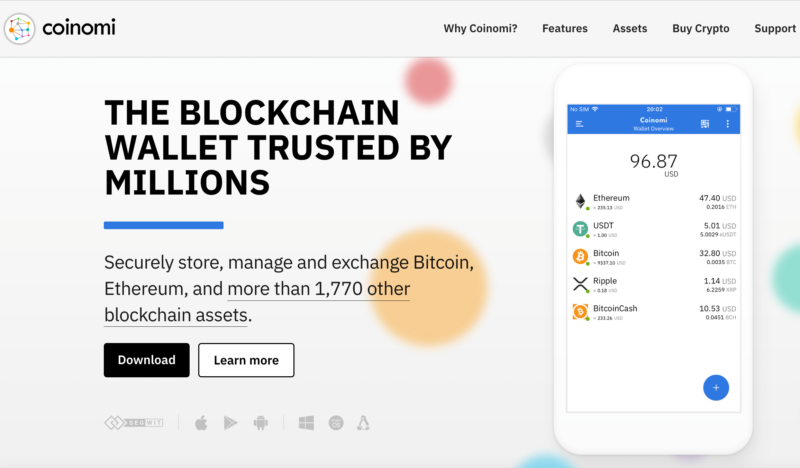
There are many popular crypto wallets that you can use on your mobile device. Coinomi is an excellent choice, due to its user-friendly interface and the wide range of features it offers.
Coinomi supports more than 125 blockchains and over 1,770 cryptocurrency assets and Ethereum-based collectibles and NFTs — more than any other wallet. Coinomi has been around since 2014 and was the first multi-coin wallet available.
There have not been any known hacks or compromises in all the years since Coinomi’s launch. The encrypted private keys are stored locally on the user’s device and never shared over the internet. Coinomi is considered secure and trusted by millions of users.
Coinomi uses IP anonymization to protect the user’s IP address and offers a high level of anonymity (read our guide to learn more about crypto anonymity). The wallet is non-custodial, which means that users have complete control of their funds.
Privacy is vital, and you only need to go through KYC (know your customer) if you want to use one of the partner services like Simplex. With Simplex, you can directly buy cryptocurrencies with your credit card.
If you have any issues with your digital wallet, 24/7 live chat customer support is there to help you. Besides that, Coinomi is available in many different languages and offers additional features like a Web 3.0 dApp browser, crypto DNS support, cold staking and more. For us, Coinomi is the clear winner of the best mobile crypto wallet category.
The Best Wallet for Beginners: Coinbase Wallet
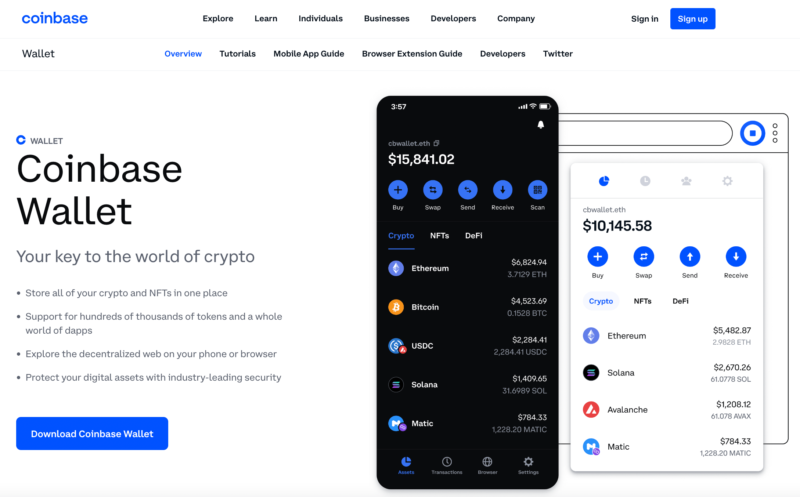
In addition to the well-known Coinbase cryptocurrency exchange, Coinbase offers a non-custodial wallet that gives you total control over your digital currencies. The hot wallet offers a user-friendly interface that is also easy to navigate for beginners.
You don’t need to have a Coinbase exchange account to use the Coinbase wallet, but if you do, you can connect them to easily store, transfer and exchange your cryptos. If you do not want to use the Coinbase exchange, you can use a decentralized exchange (DEX) with your Coinbase wallet instead. Learn more in full Coinbase review.
With Coinbase, you can store, send and receive over 500 cryptocurrencies, which includes mainly Ethereum ERC-20 tokens but also layer-2 scaling solutions like Polygon and Optimism. This comes in handy if you want to use Web 3.0 applications and avoid the high Ethereum gas fees and long confirmation times.
Gas fees are the amount of Ether (ETH) required for the Ethereum blockchain user to run a transaction. Gas fees go to the Ethereum miners (and soon, stakers) to compensate them for verifying transactions and securing the Ethereum network.
The mobile app is available on iOS and Android, and you can also set up a browser plugin. The Coinbase wallet comes with full integration of bank accounts and credit or debit cards to top your wallet. Besides your favorite token, you can also store NFT (non-fungible tokens) and other digital collections.
All the aforementioned features combined with superb usability make Coinbase the ideal wallet for beginners.
Best Crypto Wallet for Bitcoin: Mycelium Bitcoin Wallet
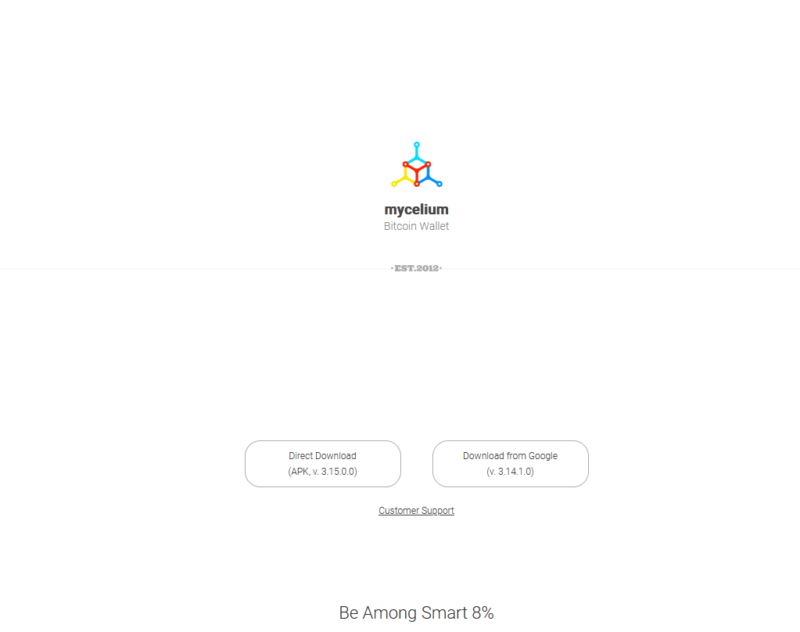
The Mycelium cryptocurrency wallet is a mobile application that started out as a Bitcoin-only wallet. It was launched in 2012 by the Austrian-based company Megion R&D GmBH and was one of the first of its kind. Since then, its track record has been positive. Today Mycelium also supports other cryptocurrencies like Ethereum (ETH), Tether (USDT) and dozens more.
Mycelium does not provide the most beautiful interface, but it is free and easy to use. If you’re new to cryptos, you may find the mobile app overwhelming in the beginning. There is no desktop version available, but the mobile version is available on iOS and Android.
If enhanced security and privacy features are important to you, Mycelium is the right choice.
Your assets are entirely self-custodial, protected via PIN code, and your private key is encrypted. The secure wallet also works with well-known hardware wallets like Trezor and Ledger if you prefer to hold your assets in cold storage.
The software is open source so that everybody can read and verify the source code, and your wallet can open an anonymous connection to the internet by utilizing the Tor network. Additional features are in place to make sure your digital assets are secure.
Mycelium has paired with different partners to offer various financial services like swapping or buying cryptocurrencies via credit card or bank transfer. To send Bitcoin to a friend, you can use the QR code for peer-to-peer transactions.
The most unique feature is the availability of in-person trading in your local area. After meeting them in person, you can use the Mycelium marketplace to find users for peer-to-peer transfers from one wallet to another. All the features mentioned above make Mycelium our favorite Bitcoin wallet.
How to Choose the Best Crypto Wallets: What Fits You?
The most important factors when choosing the best crypto wallet for you are security, use case and which crypto currencies and blockchains the wallet supports. However, other factors might affect your decision, including price and usability. This section explains this all in more detail.
Crypto Wallet Security
Security is a critical factor to consider when selecting your crypto wallet. Some wallets are more secure than others, so make sure that the one you select meets your needs.
Hardware Wallets vs Software Wallets (or Cold vs Hot Wallets)
Cold storage wallets (also called hardware crypto wallets) are generally more secure than so-called “hot wallets.” Storing large amounts of money in cryptocurrency wallets can be risky. Using a hardware device to keep your private keys safe can reduce the risk of losing your cryptocurrency.
A hardware wallet is a physical device that securely stores the user’s private key without connecting to the internet. That makes it almost impossible for remote attackers to access your digital funds. The private key has to be your secret and is required to authorize transactions of your digital currencies.
In comparison, hot wallets, also called “software wallets,” come in the form of mobile or desktop applications and browser plugins; they are connected to the internet. Your crypto assets are still secure, but hot wallets are easier to use for more frequent transactions with greater vulnerability to attacks. If you are careful not to fall for scams, your cryptocurrency assets will be safe.
Custodial vs Non-Custodial Wallet Options
Differentiation between a custodial and non-custodial wallet is also key in the crypto world. With a non-custodial wallet, you are fully responsible for and in control of your crypto assets. You are holding your private keys and are your own bank. If you lose your keys, you lose your crypto assets.
Custodial wallets, on the other hand, rely on a third party — such as a cryptocurrency exchange like Coinbase — to take care of your keys.
In most cases, hardware and software wallets are non-custodial. Wallets that come with a bank account or are provided by a crypto exchange are custodial. Advanced crypto users who subscribe to the “not your keys, not your coins” theory tend to use non-custodial wallets.
Crypto Wallet Usability and Your Use Case
With usability, the first thing you need to consider is the interface of the wallet. Some wallets have very user-friendly interfaces, while others may be more technical and appropriate for advanced users.
If you’re new to the crypto world and don’t want to deal with technical details, it might be best to stick with a simpler one, at least in the beginning. Most advanced users have more than one wallet they use regularly.
Almost every hot and cold wallet offers the basic functions of a digital wallet — that is, sending and receiving, storing, buying and selling your digital assets.
Suppose you purchase and plan to hold your cryptocurrency. In that case, a basic hardware wallet is probably a better choice.
However, if you are using Web 3.0 applications daily, then a hot wallet in the form of a browser plugin is perhaps a better choice.
Supported Crypto Currencies and Blockchains
There are specialized wallets that only store Bitcoin, but most of them can also store Ethereum and ERC-20 coins and tokens. ERC-20 is a standard used for creating and issuing smart contracts on the Ethereum blockchain.
If the digital asset you want to buy is not based on the Ethereum blockchain, you might need a specific wallet or an ERC-20 implementation of the digital asset.
More common tokens like Cardano (ADA), Fantom (FTM) and Avalanche (AVAX), which also have native blockchain, often have an ERC-20 token implementation that can easily be stored on most of the standard wallets. Let’s have a look at the category winners now.
Crypto Wallet Price
Wallets provided by exchanges are usually free. There are also many free browser plugins, like MetaMask, Coinbase Wallet or software wallets that you can download to your desktop computer or phone.
Prices for hardware wallets start at around $60 and can cost as much as $500. If you are just starting out and not investing vast amounts of money, you don’t necessarily need a hardware crypto wallet.
Final Thoughts: The Best Crypto Wallets
If you’re thinking about investing in cryptocurrencies, you’ll need to get yourself a wallet to store it securely. A good wallet allows you to keep your coins safe while making it easy to use them. Be sure to read our crypto exchange crash article to learn more about the future of decentralized finance.
We hope that you got some guidance for your decision on which wallet to choose. What did you think of our list of the best crypto wallets? Do you agree with our choices or did we leave out your favorite? Are there other wallets you think we should include? Let us know in the comments below. Thank you for reading.
FAQ
The top crypto wallet depends on how you plan to use it, but our overall favorite is Ledger Nano S, due to its ease of use, security and the availability of apps for all major platforms.
The Ledger Nano S wallet is the best choice for security because it uses cold storage, meaning it’s not accessible via the internet. It is one of the two cold wallets we recommend in this list.
The top crypto wallet for beginners is Coinbase, thanks to its easy-to-understand UI and direct integration with the Coinbase Exchange.
The top crypto wallet specifically for Bitcoin is Mycelium, which has several features — like QR-code transfers — exclusive to Bitcoin transactions.





